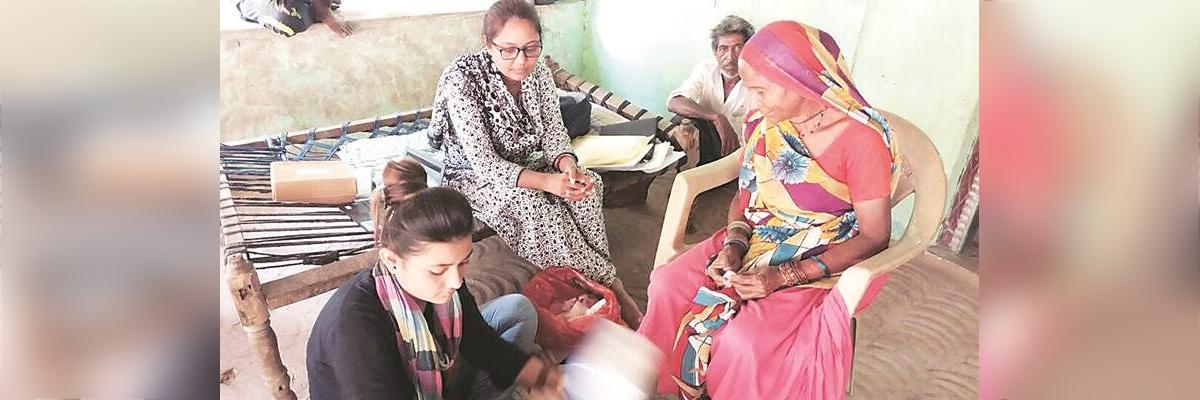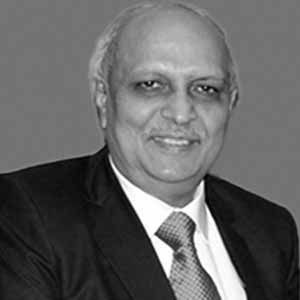Proper revision of electoral rolls is a must

Finally, the Chief Electoral Officer, Telangana released the data of poll percentage Overall for the state it stood at 73 per cent and for Hyderabad city at 48 per cent This low voter turnout is not peculiar to Hyderabad but is witnessed in the other urban centres as well In the recent elections in Karnataka also Bangalore city witnessed a turnout of about 51 compared to overall percentage of
Finally, the Chief Electoral Officer, Telangana released the data of poll percentage. Overall for the state it stood at 73 per cent and for Hyderabad city at 48 per cent. This low voter turnout is not peculiar to Hyderabad but is witnessed in the other urban centres as well. In the recent elections in Karnataka also Bangalore city witnessed a turnout of about 51% compared to overall percentage of 72 per cent recorded for the state for the same election.
What could be the reasons for apathy of the urban voter to the election process? Recently I was listening to random reactions captured by a TV channel from different persons from Hyderabad who voted in the recent elections. Some of the observations by them are striking. One lady interviewed told that she went to the polling station to be told that her name was not there and was directed to a different polling station but she had to wait in the queue for a long time to cast her vote and come back. She was questioning how can she leave her small business go and waste her time to vote.
One thing that emerges out of this reply is that she has not taken money for casting her vote. Another person questioned informed that that she has exercised her franchise but her children could not as they were abroad. Another lady very vehemently was arguing that no purpose would be served by voting and she has not voted in any of the elections since she does not see anything positive coming out of it. Though not substantially but partly the reason for low percentage of voting in the urban areas could be due to three reasons. In metros like Hyderabad and Bangalore lot of youngsters have migrated to far of places including America and may not come back just to exercise their vote. Similarly given the fact that our electoral rolls are not kept updated number of persons who have a vote here also have a vote back in their native village.
A recent study done by an agency taking out the electoral rolls of Andhra Pradesh and Telangana and matching them with names has shown that a huge number who have a vote in Telangana also have a vote in Andhra Pradesh as well. Same should be equally true for persons from Telangana having a vote in their native village as well as at Hyderabad .
Since distance is not much most of them may prefer to go back to their village to vote which can also have an impact on the percentage of polling in the urban areas. Since electoral rolls are not updated properly even during the process of intensive revision the names of those who come on employment and go on transfer may also figure in the electoral rolls even though they are not in that particular urban centre at the time of elections. When I shared on Twitter some of my observations on this issue a person reacted specifically giving information that in their house number there are around 42 votes though only eight people live there.
For the last two decades there were number of people who lived there on rent and their votes are not removed. If the low percentage of voting in urban areas is due to any of the above three reasons then it is a good sign since it rules out large scale impersonation or bogus voting. Unless the election commission commissions proper scientific study to arrive at what could be the percentage of persons not voting for the above three reasons it would be difficult to arrive at the actual percentage of those who did not vote deliberately.
At the heart of this problem is the faulty electrical rolls. Electoral rolls are revised in two ways. One intensive revision which happens once in a year when the department officials go door to door to get information of the people who are living there and accordingly add or delete the names in the voters list. The other is a summary revision where the draft list is published and objections are invited and finalised. This intensive revision does not seem to be carried out properly. If people living in a particular place over a period of 20 years as tenants find their names in the voters list it only shows additions are being carried out without deleting the names of the earlier residents in the same place.
This one example may be an extreme case but that reflects the general trend . It is time authorities focus on proper revision of the electoral rolls including ensuring that one does not have a vote in two places by reconciling the electoral rolls of different places through a proper software. These issues are of greater relevance for urban electoral rolls where migration is going to be high compared to electoral rolls in the rural areas.
I am quite sure even after eliminating all the above three factors, low voter turnout in urban areas could be the result of apathy of a number of voters to the whole process of election. How to make them interested to vote is a challenge for the election commission. During the non-election period the focus of election commission should be on educating and motivating such people to exercise their franchise.
Political parties who only become active during election time should also fully get involved in this process of educating and motivating public to exercise their franchise. Penalising for not exercising the right to vote may not really work out since any individual if he is not satisfied with the candidates and the ideology and philosophy of the parties who are contesting the elections has a right not to choose any of them. Though the option of NOTA is available only way forward is by motivation and education than by penalising.








